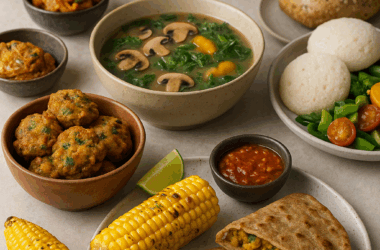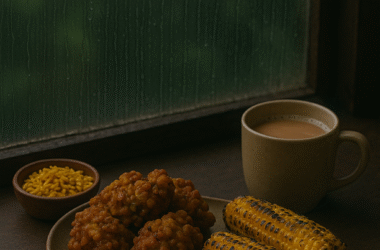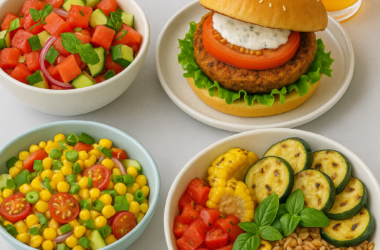Mumbai’s vibrant street food scene is a beloved part of the city’s culture, offering an array of delicious and affordable snacks. From spicy vada pav to tangy pani puri, these street delicacies are a staple for locals and tourists alike. However, the monsoon season, while bringing relief from the sweltering heat, also poses significant health risks, especially when it comes to street food. The high humidity and constant rainfall create an environment conducive to bacterial growth. This will make food spoil faster and increasing the chances of foodborne illnesses. Let’s discuss some street foods that are best avoided during the monsoons to ensure a safe and enjoyable culinary experience.
Pani Puri: A Risky Delight
Pani puri, a quintessential Mumbai street food, is a favorite for many. However, during the monsoons, it can become a breeding ground for bacteria. The water used in pani puri is often stored in large containers. This can easily get contaminated with bacteria due to the damp and humid conditions. Additionally, the use of unfiltered water and the potential for dirty hands to come into contact with the puris can further increase the risk of waterborne diseases such as cholera, typhoid, and gastroenteritis. To avoid falling ill, it’s best to skip this tempting treat during the rainy season. Opt for homemade versions where hygiene can be better controlled.
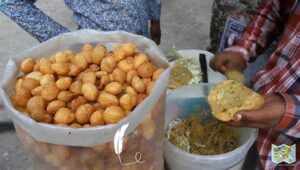
Chaats: A Cautionary Tale
Chaats, another popular street food category, includes a variety of dishes such as bhel puri, sev puri, and dahi puri. These savory snacks are typically made with a mix of chutneys, raw vegetables, and fried components. During the monsoons, the risk of contamination increases as the ingredients are often left exposed to the humid air. This accelerates spoilage and bacterial growth. Raw vegetables like onions, tomatoes, and coriander, which are key components of chaats, can harbor harmful bacteria if not washed properly. Moreover, the chutneys, which are usually pre-prepared and stored, can spoil quickly in the damp weather. To avoid health issues, it’s advisable to steer clear of street chaats during the rainy season. Its always better to prepare them at home with fresh ingredients.
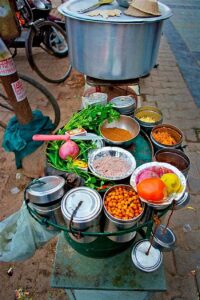
Seafood: A Hazardous Choice
Mumbai’s coastal location makes seafood a popular choice among street food vendors. From fried fish to prawn curry, the options are diverse and tempting. However, monsoon is not the best time to indulge in street-side seafood. The heavy rains and fluctuating temperatures can cause seafood to spoil rapidly, and improper storage or cooking methods can lead to serious health risks such as food poisoning and gastrointestinal infections. Additionally, the marine environment can become more polluted during the monsoon, increasing the likelihood of contaminated seafood. To enjoy seafood safely during this season, it is recommended to purchase it from reputable sources and ensure it is cooked thoroughly at home.
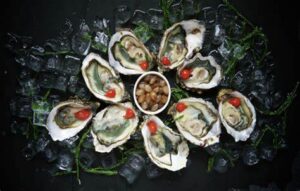
Fried Snacks: Delicious but Dangerous
Fried snacks like samosas, bhajiyas, and vada pav are immensely popular on Mumbai’s streets. They become more popular especially during the monsoon when they are paired with a hot cup of tea. While these snacks are undeniably delicious, they pose significant health risks during the rainy season. The batter used for frying can quickly become a breeding ground for bacteria in the humid weather. Moreover, the oil used for frying is often reused multiple times, which can degrade its quality and lead to the formation of harmful compounds. Consuming such snacks can result in stomach infections, food poisoning, and other digestive issues. To mitigate these risks, it is best to avoid fried street snacks during the monsoons and opt for freshly made alternatives at home.
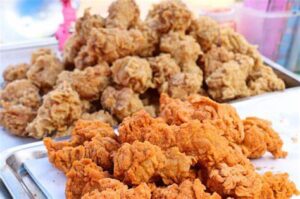
Conclusion: Prioritizing Health and Safety
While Mumbai’s street foods are an integral part of its culture and a must-try for food enthusiasts, it is crucial to prioritize health and safety during the monsoon season. The increased risk of food contamination and spoilage makes it important to be cautious about what we consume from street vendors. Opting for homemade versions of your favorite street foods or choosing reputable and hygienic eateries can help reduce the risk of foodborne illnesses. By being mindful of these precautions, you can enjoy the culinary delights of Mumbai without compromising on your health.
Utpal Khot
Copyright © Utpal K
1. If you share this post, please give due credit to the author Utpal Khot
2. Please DO NOT PLAGIARIZE. Please DO NOT Cut/Copy/Paste this post
© Utpal K., all rights reserved.
Copyright Notice: No part of this Blog may be reproduced or utilized in any form or by any means, electronic or mechanical including photocopying or by any information storage and retrieval system, without permission in writing from the Blog Author Utpal Khot who holds the copyright.

